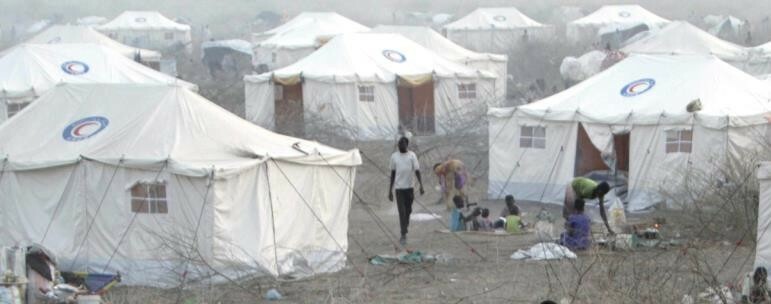Many South Sudanese refugees who have sought refuge in neighbouring countries from violence in their own country are worried due to insecurity incidents in the camps.
Some 1.6 million people are internally displaced, and 2.2 million South Sudanese are refugees in neighbouring countries.
Each year on June 20, the world celebrates World Refugee Day. This year, the focus is on the right to seek safety. “Every person on this planet has a right to seek safety – whoever they are, wherever they come from and whenever they are forced to flee.”
Refugees in Sudan
Kongo Lam, head of Um Sangour refugee camp in Sudan’s White Nile state, told Radio Tamazuj that the South Sudanese refugees are concerned about their safety. He says the camp’s inhabitants have been experiencing recurrent conflicts with the host community.
“The refugees in at Um Sangour camp do not feel safe because of the recurring conflicts from time to time with the host community,” he said.
Kongo pointed out that the lack of water at the refugee camp in White Nile is one of the issues that create conflicts between the local host community and the refugees.
He says humanitarian workers are continuing to provide basic services such as health, food, water and sanitation, but most of those services are inadequate.
Yohanna Anyong, head of the Al-Jamaiya refugee camp in White Nile, said the security situation is relatively stable. However, he complained about the lack of humanitarian aid, saying many refugees now consider going back home due to the worsening humanitarian situation.
The refugee said rape and other sexual violence remain among the most serious problems facing women refugees in the camp. “In some cases, the perpetrators were arrested in coordination with the refugees and the host community, but there is no justice for rape survivors,” he said.
Refugees in Kenya
Sudanese and South Sudanese refugees in Kakuma, one of the largest refugee camps in Kenya, complained that refugees and the host community often enter into conflict, saying this causes insecurity to them.
Manhal Juma and Mahila Tutu, who fled from conflict in the Nuba Mountains in Sudan eight years ago, complained about poor living conditions and security challenges in the camp.
“We are experiencing injustice here in Kakuma camp, and this is one of the challenges of life in exile, that’s why we do not enjoy our full rights.”
Meanwhile, Mahila Tutu said: “I am not sure when I will return to my homeland despite the poor living condition here in Kakuma. But I will definitely go back when there is peace in Sudan, I did not give up.”
A refugee who only identified himself as Ibrahim said the security situation in Kakuma is relatively stable despite the conflicts that occur between the host community and the refugees. “We cannot say that there is complete stability for people in a country other than their own, but the important thing here is respect for the laws of the host country,” he said.
Ibrahim says it has been a challenge for the refugees to find an immediate response from the police who protect the camp when problems arise. He added, “We have local police stations around the camp, but their response is very slow, but we try to educate the refugees to avoid problems.”



